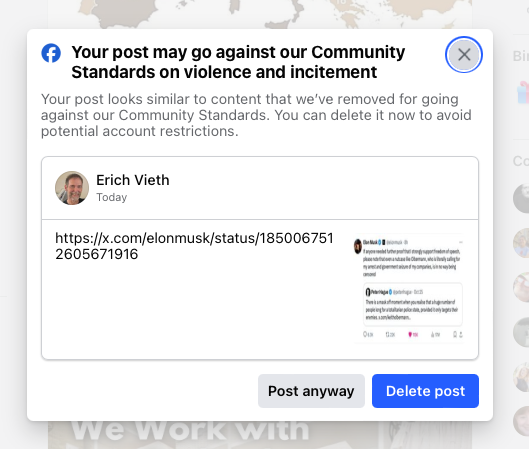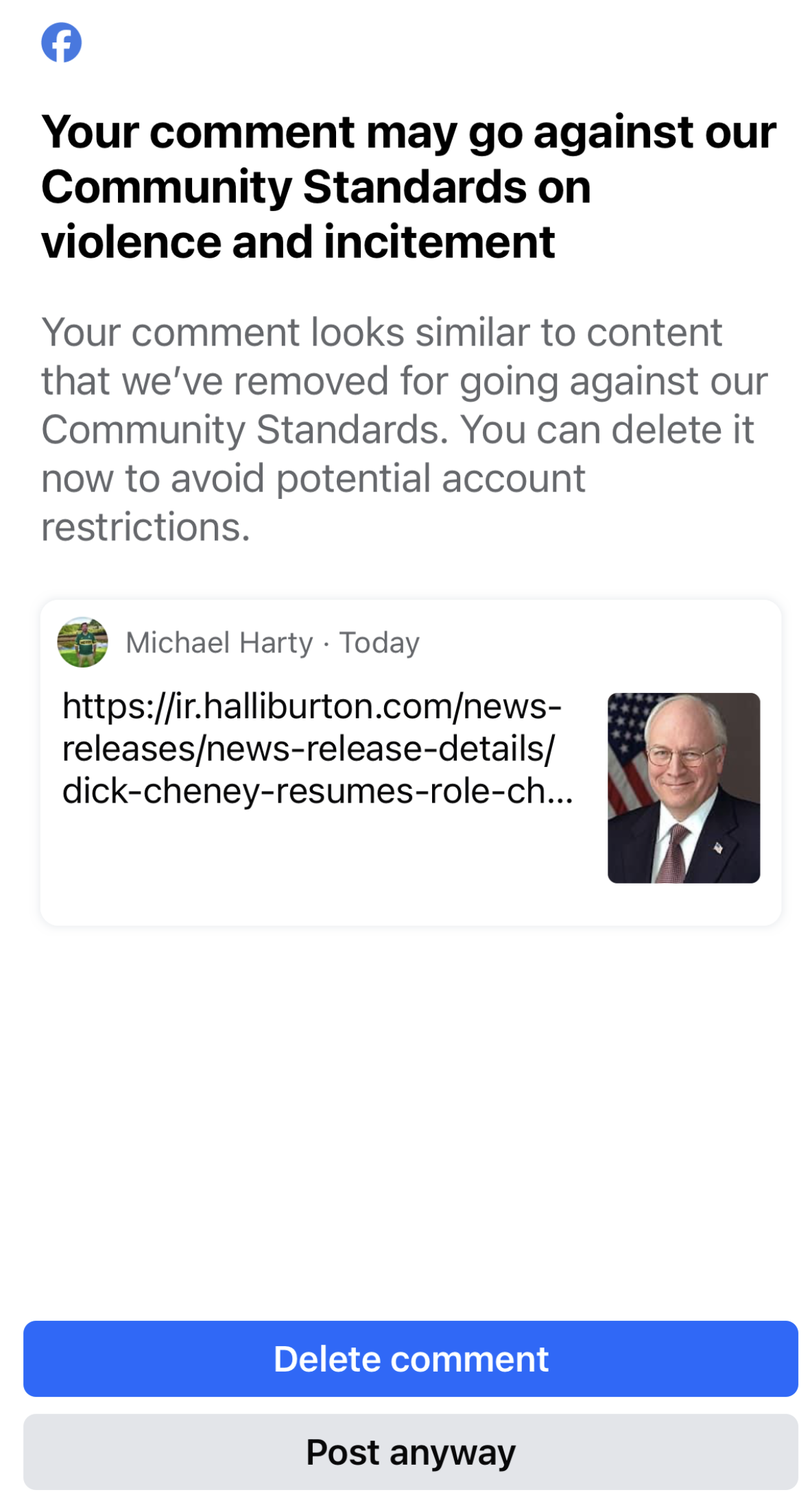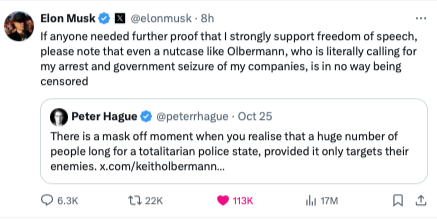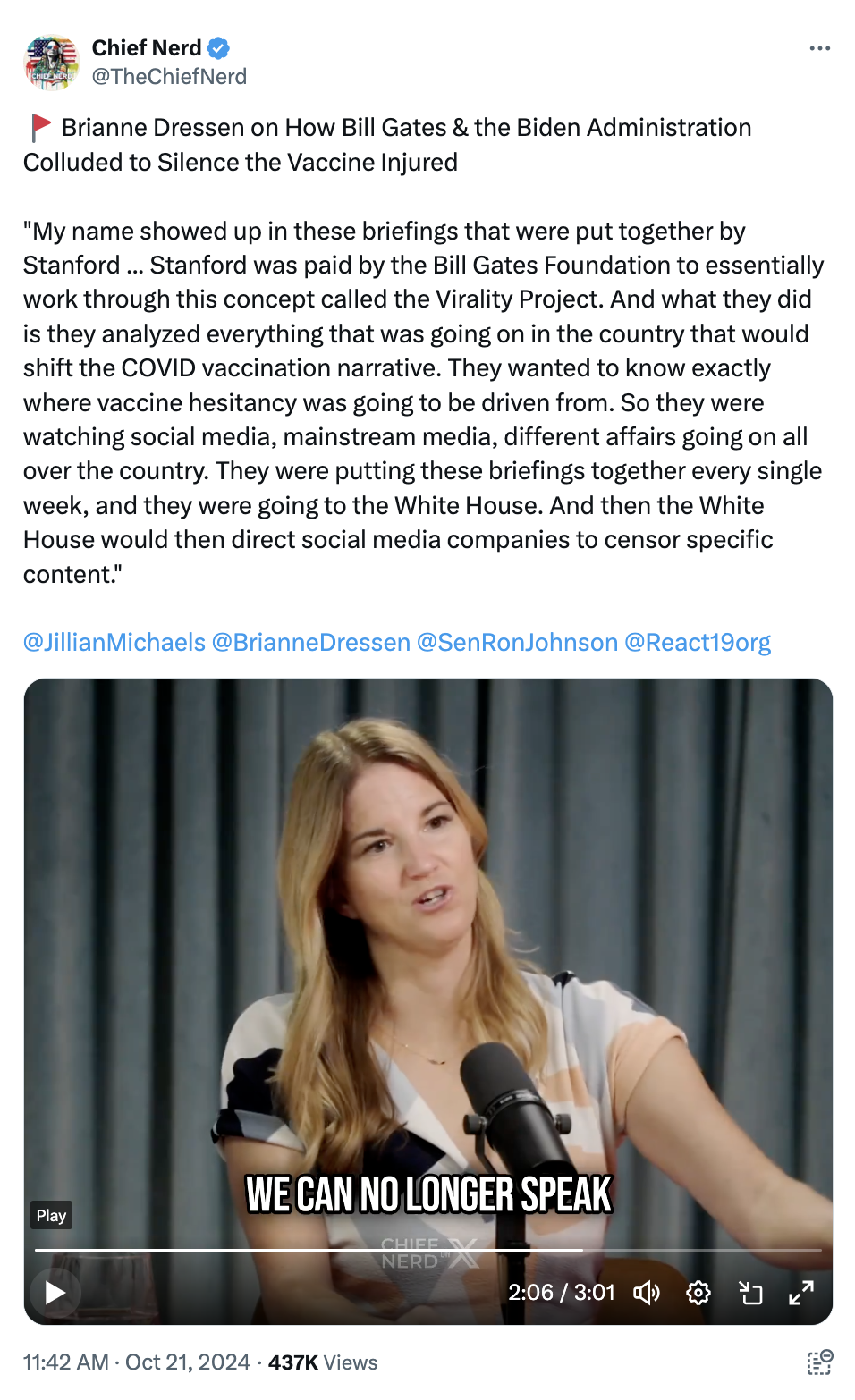More Facebook Censorship
Today on Facebook I posted Elon Musk's comment that he is so committed to free speech that Olbermann is allowed to freely bash Musk on X. FB immediately prompts me that I should delete this post because it "may go against our Community Standards on violence and incitement." See the images.
Facebook immediately prompted me:

This is typical for FB. They have done this to me several times. A few days ago, a friend of mine tried to post the undeniable fact that Dick Cheney, whose support Kamala Harris gleefully accepts, is still on the board of Halliburton. Not acceptable to FB.

Do you like the phrasing by FB? Essentially, "That's a nice group of Friends you've got there. It would be a shame if anything might happen to cut you off from them . . . "
Based on incidents like these, Facebook is still working hard to tip the upcoming election to Kamala Harris, despite the alleged epiphany of Mark Zuckerberg that he regrets prior FB censorship.






